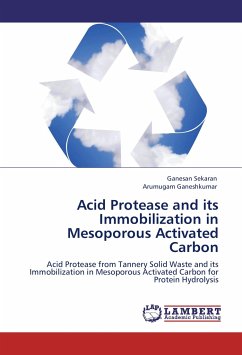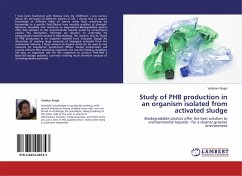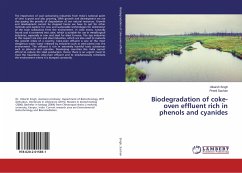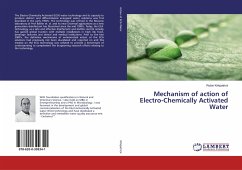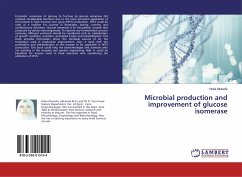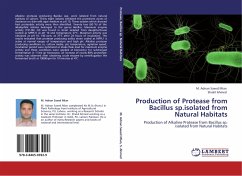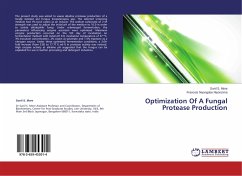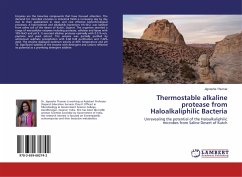The leather manufacturing industries generate 350 kg of non-tanned solid wastes that include proteinaceous animal fleshing (ANFL). The recovery of value added products such as enzymes from the solid wastes has been largely a neglected field. Reports on the utilization of ANFL as the substrate for the production of acid protease are very scanty or perhaps nil. The present investigation was focused on the production of acid protease from animal fleshing (ANFL) as the substrate using isoloated acidophiles. The enzyme was purified and immobilized in mesoporous activated carbon. The immobilized acid protease was used for the degradation of proteins in aqueous solution.
Bitte wählen Sie Ihr Anliegen aus.
Rechnungen
Retourenschein anfordern
Bestellstatus
Storno

